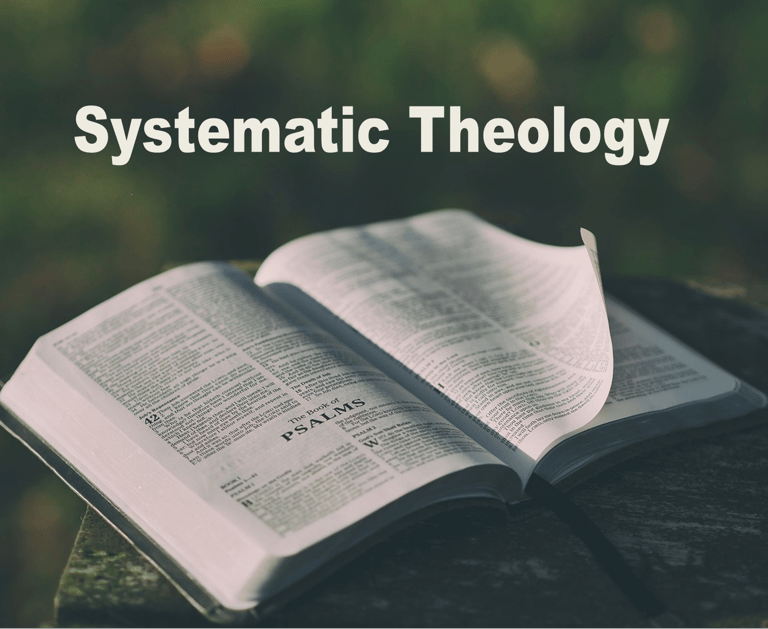Systematic Theology is a rigorous discipline within Christian theology that seeks to organize and interpret the teachings of the Bible in a logical and coherent manner. It covers a wide range of topics including God, creation, humanity, salvation, and eschatology, providing a systematic framework for understanding Christian doctrine.
The Christian Resource Library (CRL) serves as a valuable resource hub for those interested in Systematic Theology, offering numerous links...


Check out these links...
ARTICLES






Systematic Theology
Systematic theology is a discipline within Christian theology that seeks to formulate an orderly, rational, and coherent account of the Christian faith and beliefs. By systematically exploring the doctrines concerning God, humanity, salvation, Jesus Christ, the Holy Spirit, and the end times, it aims to present a unified picture of biblical teachings.
One of the foundational scriptures supporting the practice of systematic theology is 2 Timothy 3:16-17, which states, "All Scripture is God-breathed and is useful for teaching, rebuking, correcting and training in righteousness, so that the servant of God may be thoroughly equipped for every good work." This passage underscores the importance of scripture for developing a comprehensive understanding of faith that equips believers for all aspects of life.
Systematic theology involves categorizing and relating theological concepts in a way that allows believers to better understand and explain their faith. It addresses major topics such as the nature and attributes of God, which are derived from passages like Deuteronomy 6:4, "Hear, O Israel: The Lord our God, the Lord is one." This declaration of God’s oneness is foundational to doctrines about God's character and existence.
By engaging with systematic theology, Christians are better prepared to handle theological and apologetic challenges, ensuring their beliefs are not only biblically grounded but also intellectually consistent. It helps them to discern truth from heresy and to articulate their beliefs clearly in a pluralistic society.
Furthermore, systematic theology enriches personal faith by deepening understanding of complex doctrines, encouraging a more mature worship and deeper devotion. This discipline not only serves academic or church leadership purposes but also enhances the individual believer’s daily spiritual walk by connecting deep theological truths with practical life applications.
